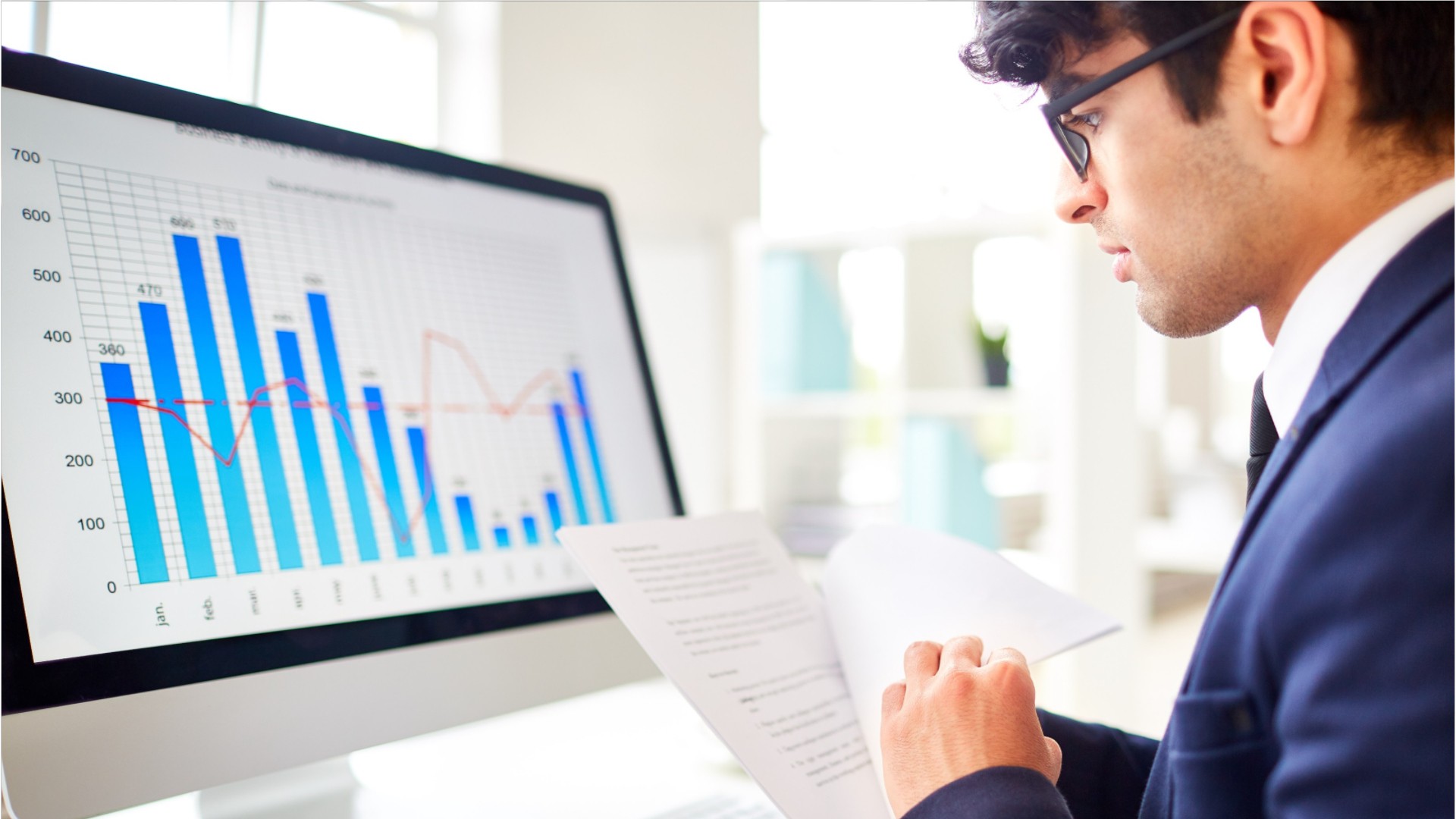Economists
Economic Analyst, Economic Consultant, Economist, Forensic Economist
 Select a military branch to see samples.
No similar titles were found.
No similar titles were found.
No similar titles were found.
Select a military branch to see samples.
No similar titles were found.
No similar titles were found.
No similar titles were found.
Defense Systems Analyst
Statistical Data Analyst
No similar titles were found.
What they do:
Conduct research, prepare reports, or formulate plans to address economic problems related to the production and distribution of goods and services or monetary and fiscal policy. May collect and process economic and statistical data using sampling techniques and econometric methods.
On the job, you would:
- Study economic and statistical data in area of specialization, such as finance, labor, or agriculture.
- Compile, analyze, and report data to explain economic phenomena and forecast market trends, applying mathematical models and statistical techniques.
- Study the socioeconomic impacts of new public policies, such as proposed legislation, taxes, services, and regulations.
Knowledge
Math and Science
- arithmetic, algebra, geometry, calculus, or statistics
Business
- accounting and economics
Arts and Humanities
- English language
Engineering and Technology
- computers and electronics
Skills
Basic Skills
- reading work related information
- thinking about the pros and cons of different ways to solve a problem
Problem Solving
- noticing a problem and figuring out the best way to solve it
People and Technology Systems
- thinking about the pros and cons of different options and picking the best one
- measuring how well a system is working and how to improve it
Abilities
Verbal
- read and understand what is written
- communicate by speaking
Math
- choose the right type of math to solve a problem
- add, subtract, multiply, or divide
Ideas and Logic
- make general rules or come up with answers from lots of detailed information
- use rules to solve problems
Personality
People interested in this work like activities that include ideas, thinking, and figuring things out.
They do well at jobs that need:
- Achievement Orientation
- Intellectual Curiosity
- Integrity
- Attention to Detail
- Dependability
- Innovation
Technology
You might use software like this on the job:
Analytical or scientific software
- IBM SPSS Statistics
- The MathWorks MATLAB
Presentation software
- Microsoft PowerPoint
Object or component oriented development software
- Oracle Java
- R
Education
Education: (rated 5 of 5)
master's degree or
doctoral degree
usually needed
doctoral degree
usually needed
Job Outlook
Below Average
New job opportunities are less likely in the future.
Explore More
- Business Teachers, Postsecondary
- Economics Teachers, Postsecondary
- Environmental Economists
- Financial & Investment Analysts
- Political Scientists
You might like a career in one of these industries:
See more details at O*NET OnLine about Economists.






